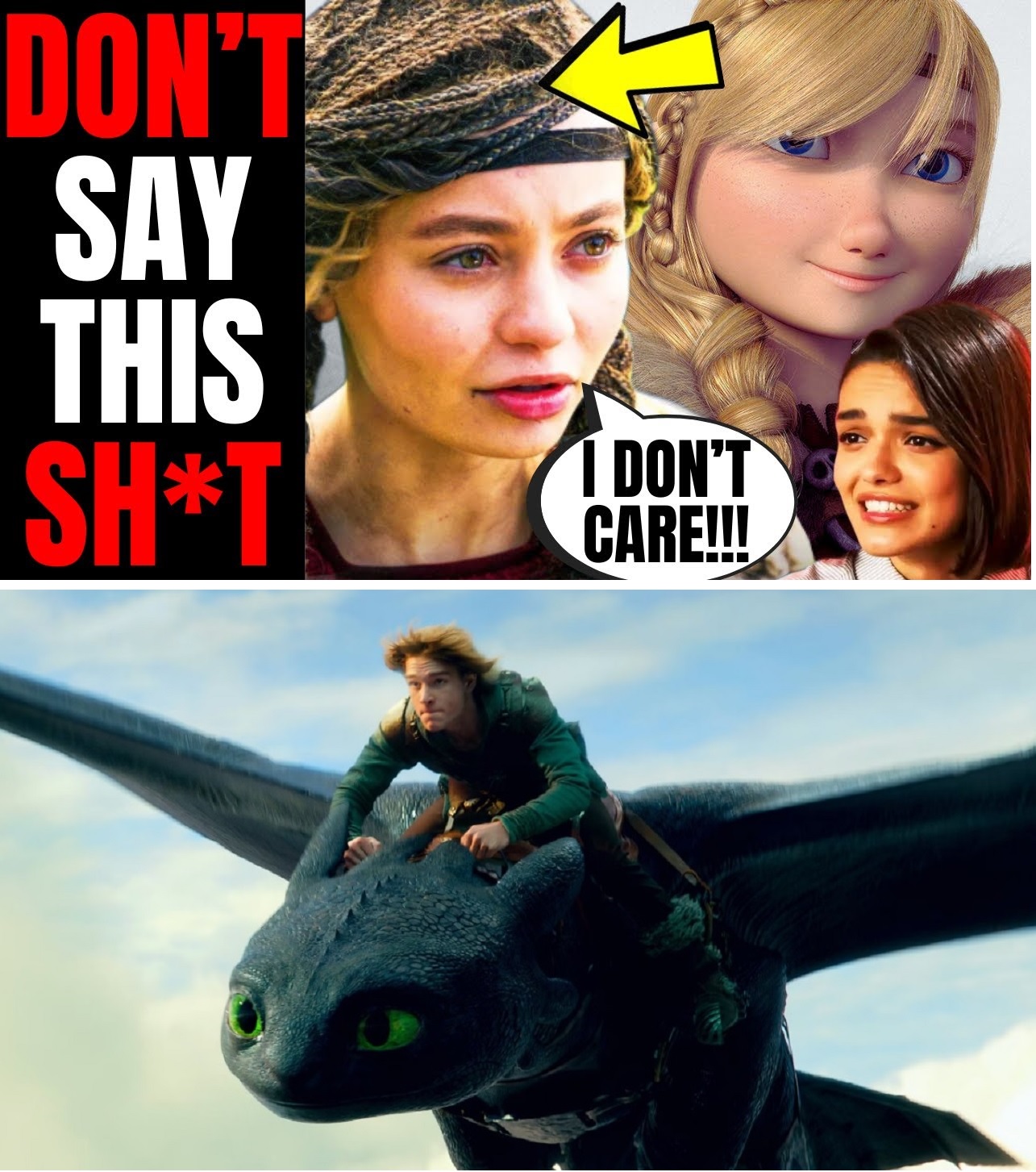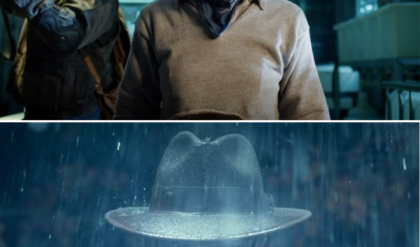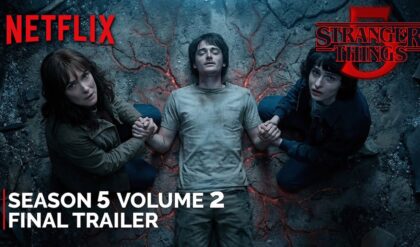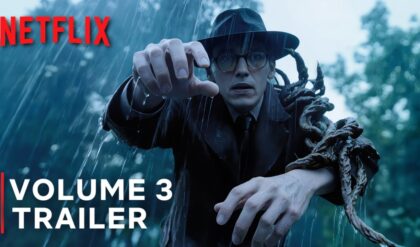How To Train Your Dragon Star’s Fan Clash: A Zegler-Like Controversy
The live-action remake of How to Train Your Dragon, set to soar into theaters on June 13, 2025, was poised to be a triumphant adaptation of DreamWorks’ beloved animated trilogy. Directed by Dean DeBlois, the film promises a faithful yet fresh take on the Viking-dragon saga, with a star-studded cast and a reported $150 million budget. However, just days before its premiere, the film has been thrust into controversy by one of its lead actors, Nico Parker, who plays Astrid Hofferson. In a move reminiscent of Rachel Zegler’s polarizing comments about Disney’s Snow White, Parker has publicly fired back at fans criticizing her casting, dismissing their concerns with a blunt, “I just don’t care.” The outburst, amplified across platforms like X, has drawn comparisons to Zegler’s high-profile clashes, raising fears that How to Train Your Dragon could face a backlash similar to Snow White’s box office flop. What sparked Parker’s reaction, and can the film overcome this pre-release turmoil? Let’s explore the controversy, its roots, and its potential impact on a highly anticipated blockbuster.

The Outburst: Nico Parker vs. the Fans
The controversy erupted on June 9, 2025, when Nico Parker, the 20-year-old actress cast as Astrid Hofferson, responded to fan criticism in an interview with Deadline. Addressing backlash over her casting as the traditionally white, blonde Viking warrior from the animated films, Parker stated, “I just don’t care. People can have their opinions, but I’m here to tell this story, and I’m proud of it. If you can’t get past my hair or my skin, that’s your problem, not mine.” The comments, reported by Deadline and shared widely on X by users like @DEADLINE and @cosmicbooknews, were seen by some as dismissive and confrontational, echoing Rachel Zegler’s 2022 remarks about Snow White’s outdated narrative, which alienated fans of the 1937 classic.
Parker’s remarks came in response to ongoing fan discontent, particularly on X, where posts like @inquisiki’s accused her of “dissing on the fans like an ignorant stubborn child” and labeled her casting as “race-swapping BS” that’s “insulting to Black people.” The criticism centers on Parker’s biracial heritage—her mother is Thandiwe Newton, who is Black, and her father, Ol Parker, is white—contrasting with Astrid’s depiction as a fair-skinned, blonde Viking in the 2010 animated film, voiced by America Ferrera. Fans argue that the casting deviates from the source material, Cressida Cowell’s book series, set in a Scandinavian-inspired world. The timing of Parker’s comments, just days before the film’s release, has amplified the backlash, with some predicting a boycott akin to Snow White’s troubled rollout.
The Zegler Parallel: A Pattern of Polarization
The comparisons to Rachel Zegler are striking. Zegler, who starred as Snow White in Disney’s live-action remake, faced intense scrutiny for calling the 1937 film “weird” and “sexist,” criticizing its focus on a “stalker” prince. Her comments, made in 2022, were seen as disrespectful to Disney’s legacy, fueling a backlash that contributed to Snow White’s dismal $43 million domestic opening against a $270 million budget. Zegler’s pro-Palestine posts and anti-Trump remarks further polarized fans, prompting Disney to hire a social media guru to vet her posts and beef up security for co-star Gal Gadot amid death threats. Like Zegler, Parker’s outspokenness has been framed as a misstep, with X users like @Burnouts3s3 and @DavidHarvey_SC linking her comments to a broader trend of actors alienating fans.
Both actresses face criticism for their roles in high-profile remakes and for addressing diversity-related backlash head-on. Zegler, of Colombian and Polish descent, was targeted for playing a traditionally white Snow White, while Parker’s casting as Astrid has sparked similar debates about “race-swapping.” However, the contexts differ: Zegler’s comments critiqued the original film’s narrative, while Parker’s focus on dismissing fan opinions about her appearance. Critics on X, like @eigenwereldNL, argue that Parker’s approach risks the same fate as Snow White, with hashtags like #NotMyAstrid gaining traction. Yet, supporters contend that both actresses are unfairly vilified for advocating for inclusivity in roles historically portrayed as white.
The Film: How to Train Your Dragon’s High Stakes
How to Train Your Dragon, directed by Dean DeBlois, who helmed the animated trilogy, adapts the 2003 Cressida Cowell novel and the 2010 film. Set on the Isle of Berk, it follows Hiccup Horrendous Haddock III (Mason Thames), a young Viking who befriends a Night Fury dragon, Toothless, challenging his tribe’s dragon-slaying traditions. The live-action remake, filmed in Belfast in 2024, retains the original’s plot, with shot-for-shot recreations of key scenes, but adds depth to characters like Astrid and Snotlout, played by Gabriel Howell. The cast includes Gerard Butler reprising his role as Stoick the Vast, Nick Frost as Gobber, and Julian Dennison as Fishlegs, with a runtime 30 minutes longer than the 98-minute original to flesh out relationships.
Early reviews are positive, with an 83% “fresh” score on Rotten Tomatoes based on 40 critics, praising its faithful adaptation and emotional depth. IMDb rates it 8/10, with reviewers noting that Nico Parker’s Astrid, portrayed as a person of color, delivers a powerful scene addressing Hiccup’s privilege, adding a modern layer to her fierce, loyal character. However, some critics mention pacing issues due to the extended runtime. The film’s visual effects, blending practical sets with CGI dragons, have been lauded, and composer John Powell’s score adapts his iconic melodies for live action. With a June 13 release, Universal is banking on the film’s nostalgic appeal to rival Disney’s Lilo & Stitch remake, which dominated Memorial Day weekend.
The Backlash: Race, Representation, and Fandom
The core of the controversy lies in Parker’s casting and her response to criticism. In the animated trilogy, Astrid, voiced by America Ferrera, is depicted as a blonde, blue-eyed Viking, reflecting the Scandinavian setting of Cowell’s books. Ferrera, a Latina actress, provided the voice, but the character’s design adhered to the story’s cultural context. Parker’s casting as a biracial actress has been labeled “race-swapping” by detractors, who argue it breaks fidelity to the source material. X posts like @inquisiki’s claim it’s “not accurate” and “insulting,” reflecting a broader sentiment among fans who value visual consistency with the animated films.
Supporters, however, argue that casting a person of color as Astrid aligns with modern inclusivity and doesn’t alter the character’s essence. Astrid’s role as Hiccup’s spunky, skilled love interest, known for her axe-wielding prowess and loyalty, remains intact, with Parker’s performance earning praise for its intensity. Fans on X defend her, noting that the Viking era was more diverse than popularly depicted, with trade routes bringing contact with non-European cultures. They also point to Ferrera’s casting as a precedent, arguing that voice and live-action casting need not match exactly. The film’s narrative, which emphasizes unity and challenging tradition, supports a diverse cast, with Parker’s Astrid adding a new perspective on Berk’s insular society.
Parker’s “I just don’t care” comment has escalated the debate, seen by critics as arrogant and dismissive of fans who cherish the original. Comparisons to Zegler, who faced similar accusations of being “self-centered” for her Snow White remarks, abound. Critics argue that Parker’s timing—days before release—jeopardizes the film’s box office, especially given the precedent of Snow White’s $43 million opening, far below Disney’s billion-dollar expectations. Supporters, however, view her stance as a bold rejection of toxic fandom, with some X users praising her for refusing to bow to racist or narrow-minded criticism.
The Cultural Context: Remakes and Representation
The How to Train Your Dragon controversy reflects broader tensions in Hollywood’s remake era. Live-action adaptations of animated classics, from Disney’s Snow White to Lilo & Stitch, face scrutiny for balancing nostalgia with modern values. Casting choices, particularly those prioritizing diversity, often spark debates about fidelity versus inclusivity. Zegler’s Snow White faced racist backlash for her Latina casting, compounded by her comments on the original film’s dated gender roles. Similarly, Halle Bailey’s casting as Ariel in The Little Mermaid (2023) drew criticism but ultimately succeeded, grossing $569 million globally, proving diverse casting can resonate if executed well.
The term “race-swapping,” frequently used on X, encapsulates fan frustration with changes to iconic characters’ appearances. Critics argue it disrupts immersion in culturally specific settings, like the Viking world of How to Train Your Dragon. However, historical evidence suggests Viking societies interacted with diverse groups, and fantasy settings allow creative freedom. The backlash also reflects fandom’s growing polarization, with terms like “woke” weaponized to critique diversity efforts, as seen in reactions to Ironheart and The Acolyte. Hollywood’s challenge is to honor source material while reflecting today’s global audience, a balance How to Train Your Dragon aims to strike through its diverse cast and updated themes.
The Industry Impact: Box Office and Beyond
The timing of Parker’s comments raises concerns about the film’s commercial prospects. Snow White’s failure, attributed partly to Zegler’s controversies, serves as a cautionary tale. Disney’s $270 million investment yielded a $43 million domestic opening, with IMDb’s 1.6/10 rating reflecting review-bombing. How to Train Your Dragon, with a $150 million budget, targets a family audience and nostalgic fans of the animated trilogy, which grossed $1.6 billion combined. Early reviews suggest strong word-of-mouth potential, but fan backlash could dampen turnout, especially in a competitive summer slot alongside Jurassic World: Rebirth and Superman.
Universal’s response has been muted, with no official statement on Parker’s remarks. Unlike Disney, which intervened with Zegler’s social media, Universal appears to be letting the controversy play out, banking on the film’s quality to overshadow the noise. Dean DeBlois, in a February 2025 interview with NBC, emphasized the remake’s intent to deepen characters and justify its existence beyond replacing the animated original, suggesting confidence in its creative vision. However, the studio may ramp up marketing, with stars like Mason Thames and Gerard Butler promoting the film’s fidelity and emotional resonance to counter negative buzz.
The controversy also highlights the risks of celebrity outspokenness in the social media age. Zegler’s career, while resilient with upcoming roles in Evita and a comedy with Marisa Tomei, has been scarred by Snow White’s fallout, with X users questioning her bankability. Parker, early in her career with roles in Dumbo and The Last of Us, faces similar scrutiny. Her comments, while defending her casting, may alienate a portion of the audience, as seen with posts predicting a “flop.” Yet, her supporters argue that her talent and the film’s quality will prevail, much like Bailey’s Little Mermaid overcame pre-release hate.
The Bigger Picture: Fandom and Accountability
Parker’s clash with fans raises questions about the relationship between celebrities and their audiences. Fandoms, empowered by platforms like X, can amplify criticism or support, shaping a film’s narrative before release. The How to Train Your Dragon backlash mirrors Snow White’s, where Zegler’s comments were seen as dismissive of fans’ emotional attachment to the original.





